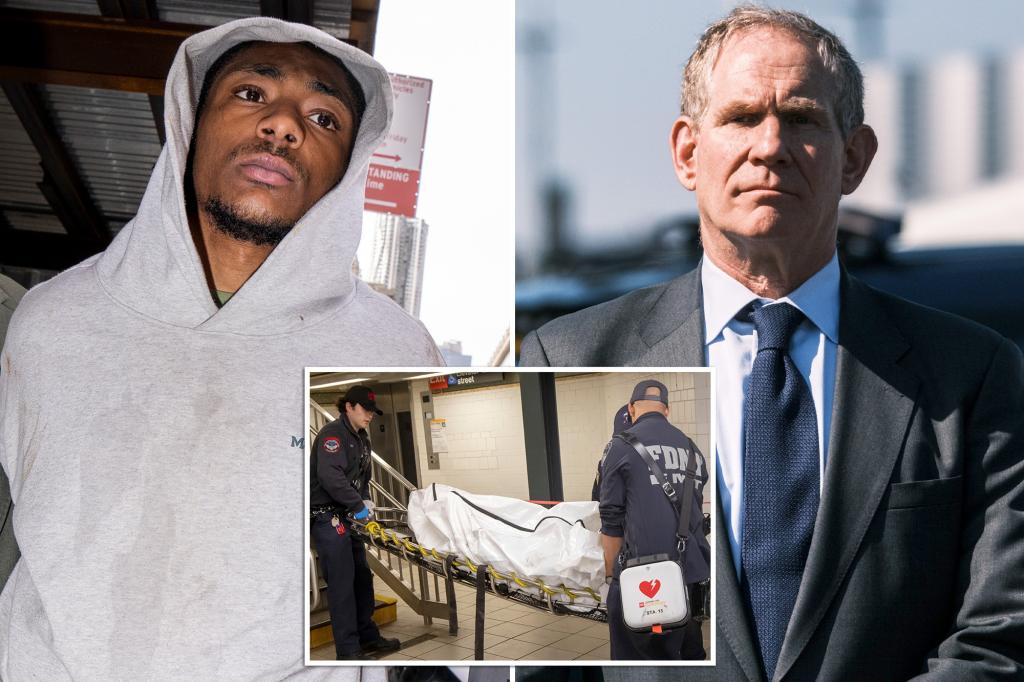New York City is facing a surge in subway crime, prompting MTA boss Janno Lieber to stress the importance of preventing the city from regressing to a time when subway crime was rampant. Lieber, who grew up riding the trains during a more crime-ridden era, emphasized that the city cannot afford to go back and must work to keep passengers safe. Concerns over transit crime have escalated following a tragic incident where an innocent man was pushed to his death in a violent subway attack.
The recent subway attack in Harlem, where 24-year-old Carlton McPherson allegedly pushed 54-year-old Jason Volz in front of a train, has underscored the urgency of addressing crime in the transit system. McPherson, who has a history of mental illness and previous run-ins with the law, was charged with murder in connection to the incident. Lieber emphasized that the city cannot surrender to criminals or individuals with mental health issues, as millions of New Yorkers rely on mass transit to live their lives.
The surge in violent crime in the city’s subway system has raised concerns about safety for passengers and employees alike. Data from the NYPD shows a 53% increase in felony assaults in the transit system compared to pre-pandemic levels. Many of these incidents have been tied to mental illness, with a significant number of perpetrators having documented psychological problems. The MTA has implemented new teams designed to intervene when mentally ill individuals experience breakdowns in stations, in order to provide them with the help they need.
The success of the MTA’s mental health intervention teams has been notable, with 90 individuals removed from the transit system over the past three months. These teams work to ensure that individuals in crisis are taken to hospitals for stabilization or provided with mental health services, rather than ending up back on the streets. Governor Kathy Hochul has pledged $20 million to expand the program from two to 10 teams, as part of a broader effort to combat transit crime. The goal is to provide support for individuals experiencing mental health crises in order to prevent further incidents of violence in the subway system.
Despite the challenges posed by the recent increase in subway crime, Lieber remains steadfast in his commitment to keeping the city safe and preventing a return to a more dangerous era. With millions of New Yorkers relying on mass transit for their daily lives, ensuring the safety and security of passengers is a top priority for the MTA. By addressing the root causes of crime, including mental health issues, and implementing effective interventions, the city can work towards creating a more secure environment for all individuals using the subway system.
In conclusion, the recent surge in subway crime in New York City has prompted a renewed focus on safety and security in the transit system. The MTA is working to address the root causes of crime, including mental health issues, through the implementation of intervention teams and expanded programs. By prioritizing the safety of passengers and employees, the city can work towards preventing further incidents of violence and ensuring that mass transit remains a safe and reliable mode of transportation for all New Yorkers.















